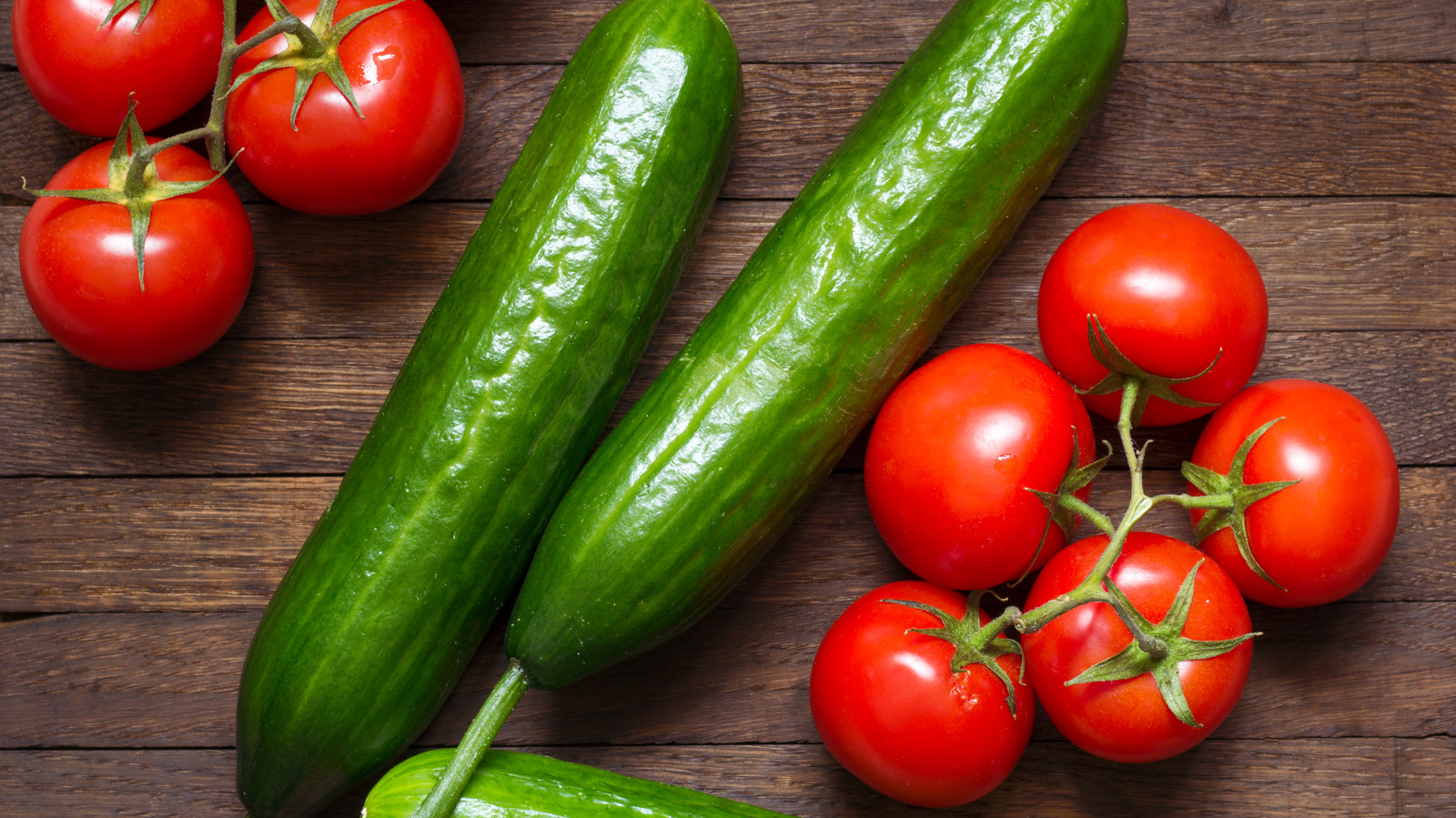
"If they get to hang out together much before being served and eaten, you may find your cucumbers have rotted much sooner than they should have. The reason is a gas called ethylene. It's a plant hormone that some fruits and vegetables give off in their ripening process. The reason some fruits ripen after they're picked is because they're what's called climacteric, meaning they keep releasing ethylene post-harvest - non-climacteric produce keeps its ethylene stable after it's picked."
"As you may have guessed, tomatoes are climacteric and actually give off quite a bit of ethylene as they ripen in your kitchen. Cucumbers, on the other hand, are especially sensitive to ethylene. When they sit next to tomatoes, all of that ethylene ripens cucumbers to the point of spoiling. They'll become soft, and their green will fade to yellow, telltale signs of rotting alongside wrinkling and, eventually, a sour smell."
Cucumbers and tomatoes should not be stored together because tomatoes produce ethylene, a plant hormone that accelerates ripening. Tomatoes are climacteric and continue releasing ethylene after harvest. Cucumbers are highly sensitive to ethylene; exposure causes them to soften, lose green color, yellow, wrinkle, and develop a sour smell, indicating spoilage. Trapping climacteric produce in bags or containers concentrates ethylene and speeds ripening. Storing cucumbers in their original packaging can promote internal ripening because cucumbers emit small amounts of ethylene that become trapped. Many other produce items, including watermelon, sweet potatoes, leafy greens, and berries, are also ethylene-sensitive.
Read at Tasting Table
Unable to calculate read time
Collection
[
|
...
]